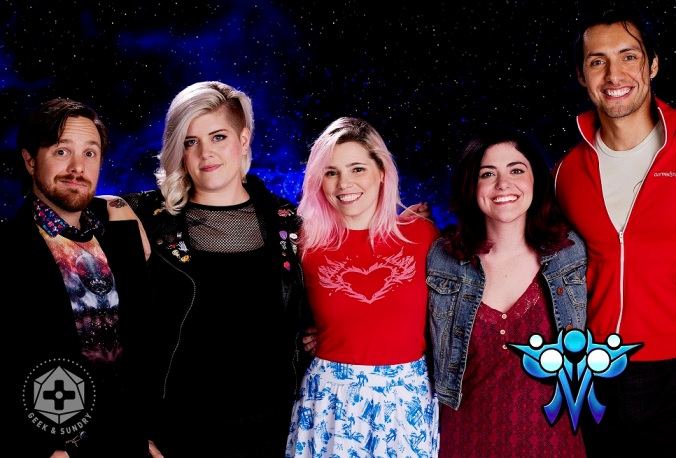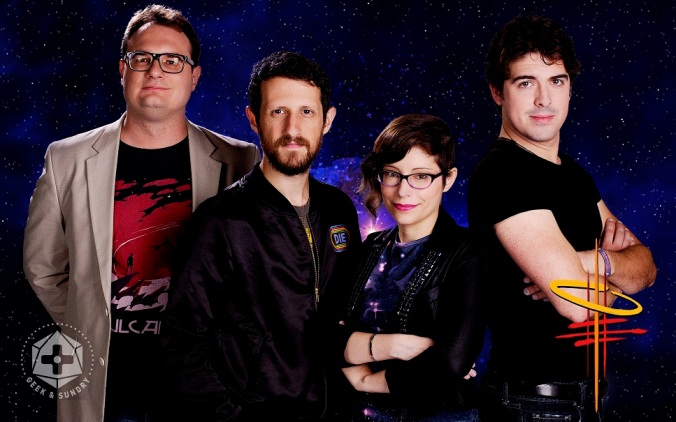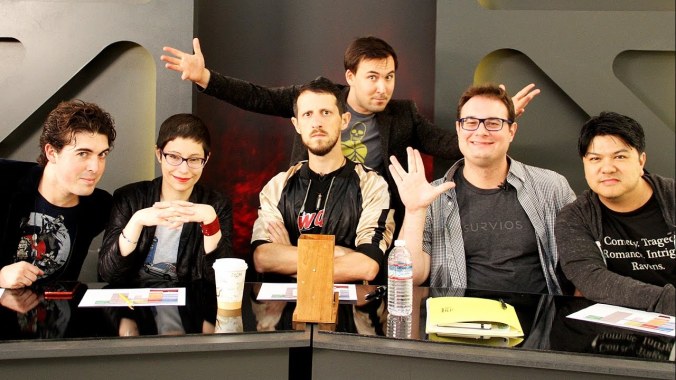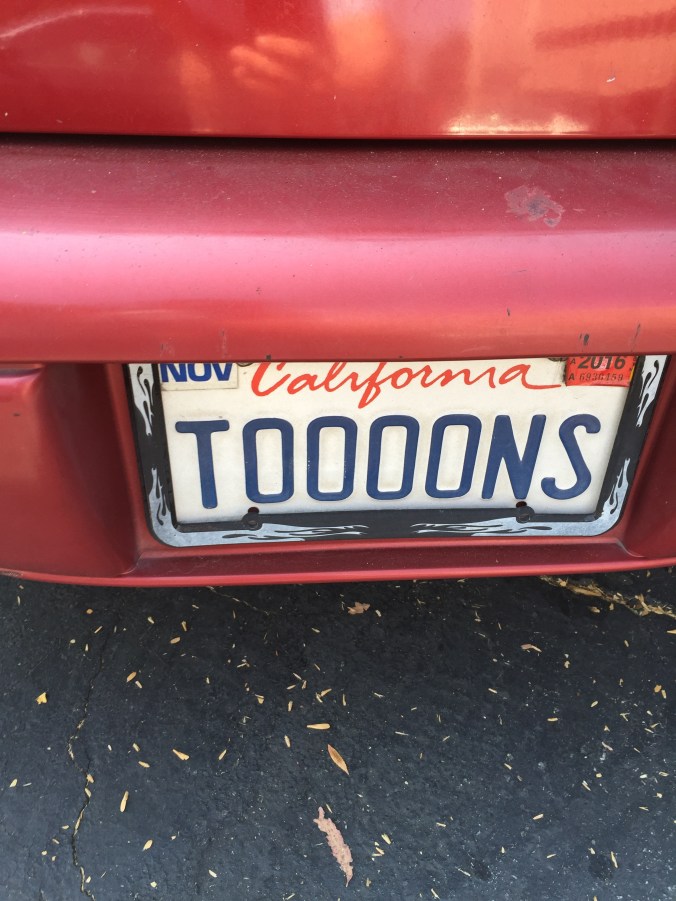
I wanted to write a post about VAST. Something I could direct people to when they inevitably asked me where they can actually watch this wonderful show we’ve been making.
For those who don’t know, VAST is a live-streamed weekly role playing game featuring a truly astounding collection of writers, actors, and nerdly tastemakers. It’s run by my friend and cohort Jackson Lanzing (Joyride, Hacktivist) and involves two parties (or crews, to use the sci-fi parlance) in opposition. Each with very different goals and a universe-ending threat in between.
It’s based – in rules and spirit – on a homebrew game of an existing science-fiction property. It’s a game we’ve been playing for years. One that’s become slightly mythic in certain (nerd) circles around LA and which people actually wanted to buy. Jack told these certain people that this would be a bad idea, for a number of reasons – not the least of which is that this certain franchise can’t be owned by anyone except the people who own it.
He had an alternate pitch. What if we delivered to them an original science-fiction universe? One where the characters and underlying IP could be owned by the people who funded it?
What would work about this model are those things that would make us different from a normal roleplaying game: two ships. Two crews. Asymmetric gameplay. Imagine The Hunt for Red October or Balance of Terror played out as two separate, but interconnected games of Dungeons and Dragons. Now imagine that chase took place across the entire universe; each decision made by each party reverberating across to the other game and back; like a seizure, traveling from one hemisphere of the brain to the other in unstoppable feedback loop.
Like Pandemic Legacy, the game you end up with permanently scars the landscape. Player and audience fundamentally altering the universe, even as they discover it together.
If that sounds fun to you, your next question is likely: where can I watch it?
Well, it turns out that’s complicated. Not crazy complicated, but as the old models of television go extinct and are replaced, there’s a lot to figure out. So let’s run through it, shall we?
Vast is one of the launch shows for Geek & Sundry’s Alpha subscription service. Once that service is ready, it will be available for a monthly fee of $4.99. That’s in addition to other Alpha-exclusive shows. (If you’re a regular twitch subscriber, don’t worry. You’ll already be getting six months of Alpha free.) And the platform will host regular Geek & Sundry content 48-hours before it goes live by normal means. In addition to all the rest, members will get access to a variety of special events, prizes and discounts. (Don’t ask me what. No idea. But I bet it’s cool.)
One more thing. For a number of good reasons too complicated to get into here, it was decided VAST would be launching before Alpha does. That means, right now, you can only get an Alpha subscription through invitation (though that’ll be changing soon). This is actually good news for you. Because it means the first four episodes of VAST will be made available live through Twitch and on YouTube for a limited time. This gives you a reasonable window to try the show, get wildly excited, and decide to give Geek & Sundry their $4.99 per month, plus whatever else they want to keep beaming it out onto your interwebs.
I will say, I’ve seen a bit of Alpha and the coolest thing about it is all the things you can’t do on Twitch, most of which involve audience interaction. These are things VAST intends to take full advantage of: viewers brought into the game space, puzzles and riddles that are too much for players to solve on our own. The first to crack these cyphers actually get brought onto our crew as science and intelligence officers.
By way of some final word, I’ve loved this game since it was homebrew. We often joked before it was a show that it was methadone for the writing and acting we did in our day jobs – all of that sweet high, none of the pain. Which is actually very dangerous when you think about it, given that we make our living through that discomfort. (If it was easy, everyone would do it.) But if we’ve done our jobs and translated even a piece of that experience into something the audience can share, I have no doubt this series will be very special.
Please watch. And, if you like it, let people know. It really is like nothing else.
Original IP. Original characters… original VAST.












